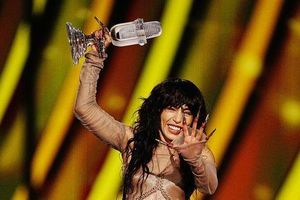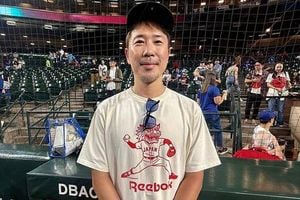A musical inspired by the breakout Australian b-girl Rachael Gunn, popularly known as Raygun, faced unprecedented legal troubles just hours before its anticipated premiere. The show, helmed by comedian Steph Broadbridge, was set to add comic musical flair to Raygun's path to the 2024 Paris Olympic Games. It featured tongue-in-cheek songs like "I’m Breaking Down" and "I Would Have Won But I Pulled a Muscle." Just minutes before the curtain was supposed to rise, Gunn's legal team put the brakes on everything, threatening lawsuits and calling for the show’s cancellation.
"I didn’t expect to be on anyone’s radar at this stage with what was meant to be this very small musical project," Broadbridge told 9News. She expressed her disappointment as she announced the cancellation on social media. "Raygun’s lawyers got in touch with the venue and threatened legal action, so we will be refunding everyone their $10 or complimentary tickets," she added. The decision to cancel came after weeks of promotion for the show.
Broadbridge emphasized her respect for Raygun, intending the musical as a homage, believing it may even bolster the athlete's brand. "I want to assure everyone she will not be part of the show. She’s very welcome to come; I would love for her to see it. They were just concerned people would think she was affiliated with it," she explained.
Gunn's management issued statements underscoring their commitment to protecting her intellectual property and the integrity of her brand. "While we have immense respect for the credible work and effort put forth, we must take necessary steps to safeguard Rachael's creative rights," read the statement. They affirmed their intentions were not to undermine Broadbridge's contributions but to preserve the authenticity of Gunn's representation.
Hours before the planned show, the turnaround featured extensive communication between the legal representatives, the venue, and Broadbridge herself. The objections extended beyond the name of the musical, as Gunn's lawyers expressed concerns over the sanctioning of the dancing motif known as the "kangaroo dance," which Raygun claimed ownership of.
Legal questions surrounding the use of Gunn's likeness and her established acts have become commonplace since her rise to fame as one of the first breakdancers to compete at the Olympics. The trademark application for the name "RAYGUN" filed by Gunn is reportedly still under investigation, complicators for any future projects tied to the athlete.
This unique case highlights the complex dynamics of arts, branding, and legal claims, especially where personal identity is involved. It's not entirely uncommon for individuals to find themselves entangled when comedic inspirations meet established personas, yet, it’s incredibly rare for these encounters to morph legally.
Broadbridge took to her social media channels, humorously noting how she would have to change the character's name to "Raigun with an i" to appease Gunn’s legal team. She also remarked on the absurdity of trademarking dance moves associated with Olympic competition, quipping, "How could I possibly do the kangaroo dance without any formal breakdancing training?"
Despite the setbacks, there remains hope from Broadbridge for the musical’s eventual run. "I’m hopeful it will come back with some adjustments, you know, maybe even under different names or story arcs," she stated. She underscored her true intent behind the project, which was to celebrate Gunn and her unique contributions to the world of dance and performance, not to diminish her credibility.
The engaging narrative of Raygun’s burgeoning career intertwined through comedy and artistry promised to resonate with audiences both familiar and unfamiliar with breakdancing’s intricacies. It navigated the multifaceted aspects of identity, the public persona of athletes, and the culture surrounding competitive dance.
Gunn, now under considerable public scrutiny post-Olympics, became the center of conversation not just for her athletic prowess but also for her responses to the cultural phenomena surrounding her popularity. Several reports emerged following her Olympic performances, showcasing Gunn's unique routines gaining viral traction.
The abrupt halt of the musical adds yet another layer to the scrutiny surrounding her growing fame. Though increasingly popular, it appears Gunn’s team is determined not to allow perceptions created by comedic interpretations tarnish the hard work she has invested over the years.
The cancellation also highlighted broader issues within the entertainment community, grappling with the intersection of creativity, intellectual property, and comedic license. Broadbridge's experience serves as both a cautionary tale and an encouragement to future creators embarking on similar artistic endeavors. These challenges remind creators of the importance of approaching subjects with respect for the individual’s legacy they seek to explore.
This dynamic between Broadbridge and Gunn reflects the ever-evolving nature of performance art. Whether audiences will see the musical resurrected remains unclear, but one thing seems to be affirmed—the delicate balance between honoring inspiration and preserving one’s brand identity is rife with potential pitfalls.
With the legal grounds still tread cautiously, the conversations continue. Will there be more discussions about how comedians should navigate tributes to public figures? Or will this case merely echo through the hallways of theater world conversations as another story of 'what could have been?' Only time will tell.



